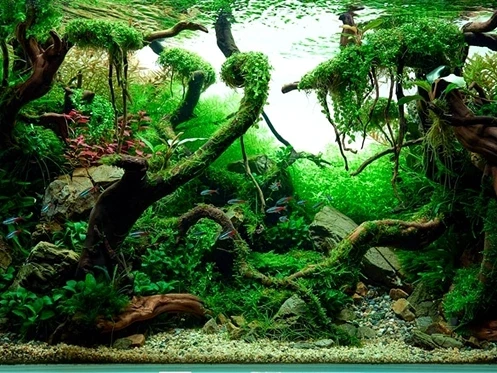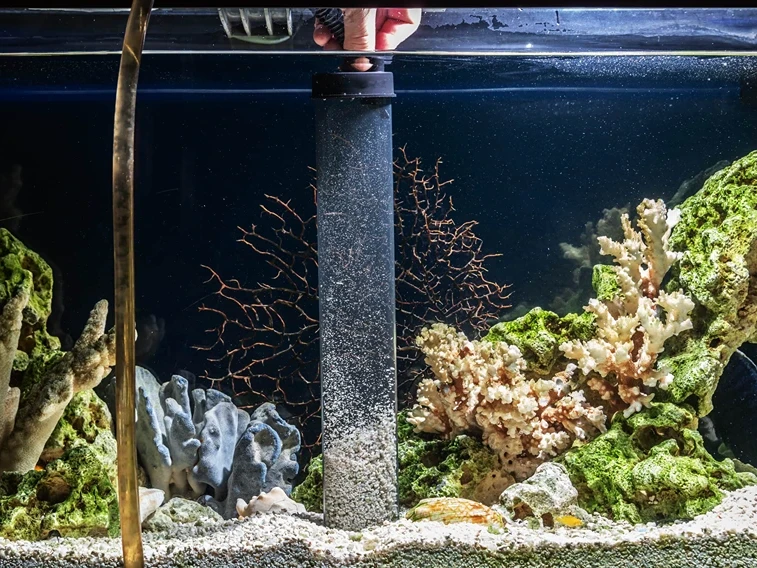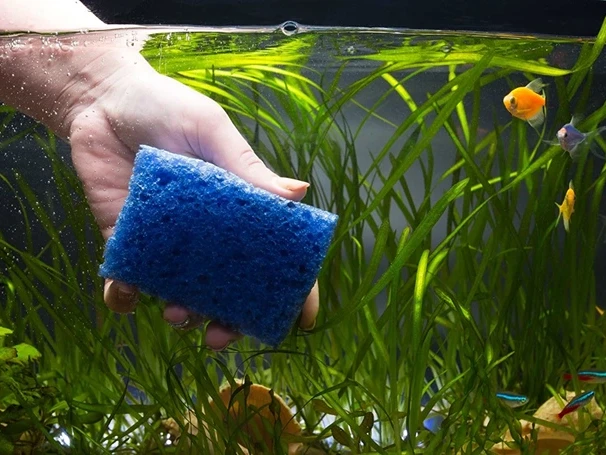Aquariums are more than just attractions; they are vital educational and conservation hubs, playing a crucial role in the preservation of marine biodiversity. In the United Kingdom, aquariums have become frontiers of marine conservation, engaging in species preservation, habitat restoration, and public education. This article explores the multifaceted contributions of UK aquariums to conservation efforts, highlighting their challenges, successes, and the ways in which the public can support these endeavors.
Jump to:
Key Takeaways
- Aquariums are pivotal in conservation education, species preservation, and habitat restoration.
- Challenges include financial, logistical, and ethical considerations.
- Success stories from the UK showcase effective coral reef restoration and endangered species breeding programs.
- Public support is crucial for the continuation and expansion of conservation efforts.
- Innovations and global collaboration are shaping the future of aquarium conservation.
Aquariums serve as windows to the underwater world, offering visitors a glimpse into the diverse ecosystems that thrive beneath the waves. Beyond their role as educational resources, aquariums in the UK are actively involved in conservation science, spearheading projects that range from breeding endangered species to restoring damaged marine habitats.
Register for our latest in-depth reviews and product round-ups from the experts
Enter your email address below to receive our twice monthly reviews emails.
By entering your details, you are agreeing to our terms and conditions and privacy policy. You can unsubscribe at any time.
Definition and Importance of Aquariums
Aquariums are complex facilities designed to mimic aquatic environments, housing a wide range of marine life for research, conservation, and public enjoyment. In the UK, these institutions are not only popular attractions but also centers for marine research and conservation. They play a critical role in raising public awareness about the importance of marine ecosystems and the threats they face.

Role of Aquariums in Conservation
UK aquariums are deeply involved in conservation efforts, employing a multifaceted approach to protect marine biodiversity. These efforts include species preservation, habitat restoration, and the education of the public on environmental stewardship.
Species Preservation and Breeding Programs
Many UK aquariums participate in global breeding programs for endangered species, contributing to the genetic diversity and stability of marine populations. These programs often involve collaboration with international conservation organizations, ensuring the survival of species that are at risk in the wild.
Habitat Restoration and Research
Aquariums in the UK are also involved in habitat restoration projects, such as coral reef restoration and seagrass planting. These initiatives not only help to rebuild damaged ecosystems but also provide valuable research opportunities on the processes that support healthy marine environments.
Public Education and Awareness
Education is a cornerstone of aquarium conservation efforts. By engaging visitors with interactive exhibits and educational programs, UK aquariums inspire a deeper understanding and appreciation of marine life, fostering a culture of conservation and environmental responsibility.
Challenges Facing Aquarium Conservation Efforts
Despite their significant contributions, aquariums face numerous challenges in their conservation efforts. Financial constraints, logistical hurdles, and ethical considerations all play a role in shaping the scope and effectiveness of their work.
Financial and Logistical Challenges
The cost of maintaining living collections, conducting research, and running conservation programs can be prohibitively high. Additionally, the logistical challenges of simulating natural environments and caring for a wide variety of species require significant resources and expertise.
Ethical Considerations
The ethical implications of keeping marine life in captivity are a topic of ongoing debate. UK aquariums are committed to maintaining the highest standards of animal welfare, but they must continually navigate the complexities of conservation ethics and public perception.
Success Stories in Aquarium Conservation
Despite these challenges, there are numerous success stories that highlight the positive impact of UK aquariums on conservation.
Case Study 1: Coral Reef Restoration
One notable success story is the coral reef restoration project led by the National Marine Aquarium. This initiative has successfully cultivated thousands of coral fragments, which are then transplanted back into the wild to help regenerate damaged reefs.
Case Study 2: Endangered Species Breeding Programs
The London Aquarium’s seahorse breeding program is another example of successful conservation in action. By breeding seahorses in captivity, the aquarium has been able to release them into protected areas, bolstering wild populations and raising awareness of the threats facing these delicate creatures.

How the Public Can Support Aquarium Conservation
Public support is vital for the continuation and expansion of aquarium conservation efforts. There are several ways individuals can contribute:
Participating in Citizen Science Projects
Many aquariums offer opportunities for the public to engage in conservation research through citizen science projects. These initiatives allow individuals to contribute to scientific research, providing valuable data that can inform conservation strategies.
Supporting Sustainable Practices and Aquariums
Visitors can also support conservation by adopting sustainable practices in their daily lives and by supporting aquariums through donations, memberships, and volunteer work. Every contribution helps to further the cause of marine conservation.
Aquariums in the UK are at the forefront of marine conservation, playing a critical role in the preservation of our planet’s aquatic biodiversity. Through their efforts in species preservation, habitat restoration, and public education, they are making a tangible difference in the fight against environmental degradation. Despite facing significant challenges, the success stories of UK aquariums serve as a testament to the positive impact that dedicated conservation efforts can have on our natural world.
Why are aquariums important for conservation?
Aquariums play a critical role in conservation by providing a platform for education, research, and the preservation of marine biodiversity. They engage the public in environmental issues, support endangered species through breeding programs, and contribute to habitat restoration efforts.
How do aquariums contribute to species preservation?
Aquariums contribute to species preservation through breeding programs for endangered species, research into marine biology and ecology, and by acting as gene banks that maintain the genetic diversity of threatened marine life.
Can visiting aquariums help with conservation efforts?
Yes, visiting aquariums can help with conservation efforts. Admission fees and donations support conservation research and projects. Additionally, educational programs and exhibits raise awareness and inspire visitors to take action in their own lives to protect the environment.
What are some ethical considerations for aquariums?
Ethical considerations for aquariums include ensuring the welfare of the animals in their care, making decisions about the captivity of marine life, and balancing educational and conservation goals with the ethical treatment of animals.

Tables of Interest
Table 1: Impact of UK Aquarium Conservation Programs
| Program Type | Number of Programs | Species Benefited | Area Restored (sq km) |
| Breeding Programs | 15 | 35 | N/A |
| Habitat Restoration | 10 | N/A | 5.2 |
| Educational Outreach | 20 | N/A | N/A |
Note: Data is illustrative and represents a collective impact of various aquarium-led initiatives across the UK.
Table 2: Public Participation in Aquarium Conservation
| Activity | Number of Participants | Conservation Impact |
| Citizen Science Projects | 3,000 | High |
| Sustainable Practices Education | 5,000 | Moderate |
| Volunteer Programs | 1,200 | High |
Note: Participation numbers are estimates based on annual reports from major UK aquariums.
Aquariums in the United Kingdom are not just attractions; they are vital centers for marine conservation, education, and research. Through their efforts in species preservation, habitat restoration, and public engagement, they play a crucial role in the global fight to protect our oceans. The future of aquarium conservation looks promising, with technological innovations and global collaborations enhancing the impact of these efforts. As we move forward, the support and participation of the public remain essential to the success of aquarium conservation initiatives.
Martin Cochran
Dive into fish care with Martin, your guide from the coastal beauty of Brighton. He shares tips on keeping your aquatic companions happy and healthy. Join him on a fin-tastic journey where every swim is a voyage of joy. Trust Martin for a smooth sailing aquatic experience.




